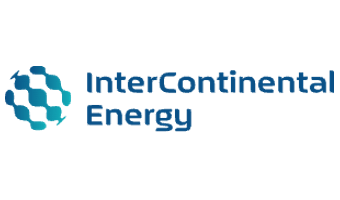Ahead of the forthcoming ESF MENA, our Vice President Stefan Chapman caught up with one of the key panellists, Alicia Eastman to discuss some of the key topics facing the industry in its journey to a more sustainable future.
Alicia is the Co-Founder and President of InterContinental Energy, the world’s largest developer of green hydrogen and green fuels production facilities, which will decarbonise multiple energy-intensive and carbon-producing sectors.
ESF MENA Speaker Interview Series
1. Over the last few months we’ve witnessed many of the Middle East’s producers begin their pivot to sustainability including some exciting project announcements – how well positioned is the region to adapt and what do you believe are the main opportunities available for the region by reducing its carbon emissions?
I think that the region is blessed with resources. It is an obvious fact that solar is available pretty much everywhere in the Middle East and MENA areas, but there are also wonderful areas with wind. This diurnal profile of high wind at night and high solar during the day is the reason we selected our project in Oman. It is really outstanding in the world in having this resource. The region also has the right conditions, in terms of large pieces of uniform land, on the ocean. You have a source of water, a source of export, and you have scale. All these things will help the region to help the world to scale and bring down the price of hydrogen and hydrogen products. The Middle East is one of the most important regions for the hydrogen industry in terms of the production side, with the important task of reducing the cost of hydrogen and hydrogen products.
2. Your recently announced project with OQ and EnerTech is set to make Oman a world leader in green hydrogen and green ammonia. What makes this project and Oman unique?
I alluded a bit previously to the diurnal profile which is extremely important. Having the high sun during the day and high winds at night that are not coming on at the same time gives you the maximum capacity factor. When you have that high-capacity factor you can run your downstream equipment much harder. It means you are getting the most out of your capex and means that the price of your product is going to be lower than any other project worldwide. Oman, and this site that we have selected with our partners is competitive with any site in the world. This is really a fantastic resource and it's going to be wonderful for the community around it in terms of jobs and even producing excess desalinated water for the location.
3. The Gulf’s strategic location means that the region has the potential to become global hydrogen champions but what is needed in terms of incentives, policy frameworks and infrastructure investment?
To have the production side, you must have the offtake side. The location in the Middle East is fantastic for both North Asia and Europe who are big leaders in this space and need be able to acquire these products. It’s more of the regulatory initiatives, whether it's carrots or sticks, on the market side that help drive the market for the projects in the Middle East. In other words, it's not so much the regulations in the Middle East, it's the regulations in Europe and North Asia that are going to drive the market. This will create offtake agreements that will underpin the project finance, and that will make it possible to build the infrastructure, and to build out what needs to be done on the ground in the Middle East to connect to these markets.
4. It's regularly noted that despite its potential as a next generation fuel, green hydrogen is not yet economically viable and hydrogen costs in general (of any shade) need to come down enough to begin revolutionizing the global energy system. How can companies develop a viable business case around green hydrogen?
Well, I think what your describing is why InterContinental Energy came into this space. We need scale to get the price down and having small pilot projects is not going to get the price down. Electrolysers are a big portion of the cost right now, but we expect that price to drop quite substantially once you get to any type of scale, a couple of gigawatts of scale and it's going to drop dramatically. Having projects at a large scale, 25 gigawatts, or 50 gigawatts, like our second project we just announced in Australia, creates a much less expensive product. You have economies of scale in every way, you have supply chain economies of scale and adding those together with the diurnal profile of great resource really gets you the lowest cost product. Until you get into that neighbourhood of competing with other possible products which might have carbon or other GHG emissions, it doesn’t have to be cheaper, but it has to be in the same magnitude, and the only way we are going to get there is by scale.
5. Thinking about the energy products and services that the region’s consumers value, as big hydrocarbon producers, how can the region build their options for the future with the assets they have? What do we need to see in terms of the cultural and political shifts towards sustainability and the demand for low carbon sources of energy?
I think to the extent possible, most of these countries have been exporters of fossil fuels and to the extent possible they can use renewable upstream resources, wind and solar, for their domestic needs. Electrification of whatever they can locally makes sense even if they are going to continue to be fossil fuel exporters. However, for reaching our 2050 goals, or 2030 goals, we really think that fossil fuels need to be replaced. The key is to repurpose the skill set, repurpose some of the infrastructure, and all the things that the industry provides but to produce hydrogen and ammonia and export that instead. That way you don’t lose your coffers from your export of energy but now you can export green energy. The Middle East can strike oil twice and the second time its good for the world because it’s a green product.
 We look forward to continuing the discussion with Alicia at ESF MENA 2021 - the only event dedicated to downstream decarbonisation in the region. Join us from 25-26 October, find out more here:esfmena.europetro.com.
We look forward to continuing the discussion with Alicia at ESF MENA 2021 - the only event dedicated to downstream decarbonisation in the region. Join us from 25-26 October, find out more here:esfmena.europetro.com.


